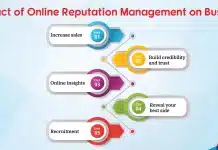Technology use has shifted from an advantage or luxury to a business necessity, as the speed of today’s corporate world increases. Many companies now rely on technology to improve sales, provide services, and streamline their efficiency with regard to official processes.
But, not many business owners know about the latest technology trends that can alter their business. There are many tools that can optimize business operations, leading to increased productivity and higher success rates. In the following article, we’ll talk about the most popular software applications and valuable tools and how they can benefit your company in the simplest way possible. Let’s get started!
Employee Monitoring Software
Implementing monitoring software for employees can be a valuable asset for businesses looking to optimize their productivity. This type of technology allows employers to track and monitor employee activity, giving them insight into how efficiently their team is working.
By providing transparent feedback on individual performance, employers can identify areas where employees may need additional guidance or support. Additionally, it allows supervisors to ensure that their employees are on task and staying focused, rather than wasting company time with non-work-related activities while on the job.
Employee monitoring software can also provide a greater level of accountability for all involved, ensuring that everyone is doing their part to maximize productivity. Ultimately, it gives businesses the ability to make sure that tasks are completed in a timely and efficient manner, resulting in improved results and fewer mistakes.
Accounting Software
Accounting software can be an invaluable tool for businesses of all sizes. It streamlines processes like digital record keeping, invoicing, payroll, and tax filing, making it easier to keep track of your finances and make data-driven decisions about how to run your business.
With the right accounting software setup, you can save time on menial tasks and focus on the parts of your business that need more attention. Plus, having accurate financial data makes it easier to understand cash flow and budget for future investments.
Many software solutions offer features such as automatic bank reconciliation, invoicing tools, real-time reporting, and integration with other systems like payment processors or ERP solutions. With this kind of automation, you can save time and money while having greater control over your finances.
CRM Software
Utilizing customer relationship management software can drastically improve customer experiences and boost sales. By tracking customers’ interactions with a business, companies are able to better understand customer behavior and learn their preferences, allowing them to customize offers based on these insights.
What is more, this advanced CRM technology simplifies the process of understanding exactly what it takes to maintain successful customer relationships and achieve excellent customer service. Consequently, it can help businesses build strong loyal customer bases who trust their products and stay loyal for longer periods of time.
Enterprise Resource Planning System
Implementing an enterprise resource planning system provides businesses with a way to effectively manage inventory and supply chain operations. It allows for greater organization of materials, improved communication in the supply chain, and quicker delivery of products to customers. Additionally, an ERP system can help reduce costly errors and monitor progress on multiple projects at once—all from one centralized platform.
The real-time data that’s gleaned from adopting such a system can provide insights into how much stock is needed and at what times, ensuring that the business’s resources are monitored closely, thus giving them better control over their finances. All in all, implementing an ERP system into a business’s existing system architecture offers not just improved metrics when it comes to managing inventories and supply chains but cost savings as well.
Project Management Tool
It is essential for businesses to invest in a project management tool to help plan and organize their projects. Without such a system in place, employees may become quickly overwhelmed and will not be able to effectively prioritize tasks or complete the job in a timely manner. A project management tool can provide clarity when planning projects, resulting in improved morale and efficiency from both managers and staff alike. With such benefits, there’s no reason to wait when it comes to investing in an effective project management tool.
Bottom Line
No matter the size of your business, there are a few essential software programs that can help streamline operations and improve efficiency. By employee monitor tracking, automating bookkeeping and invoicing, utilizing a CRM to keep track of customer interactions, implementing an ERP system to manage inventory and supply chain, and investing in a project management tool, you can set your business up for success.










